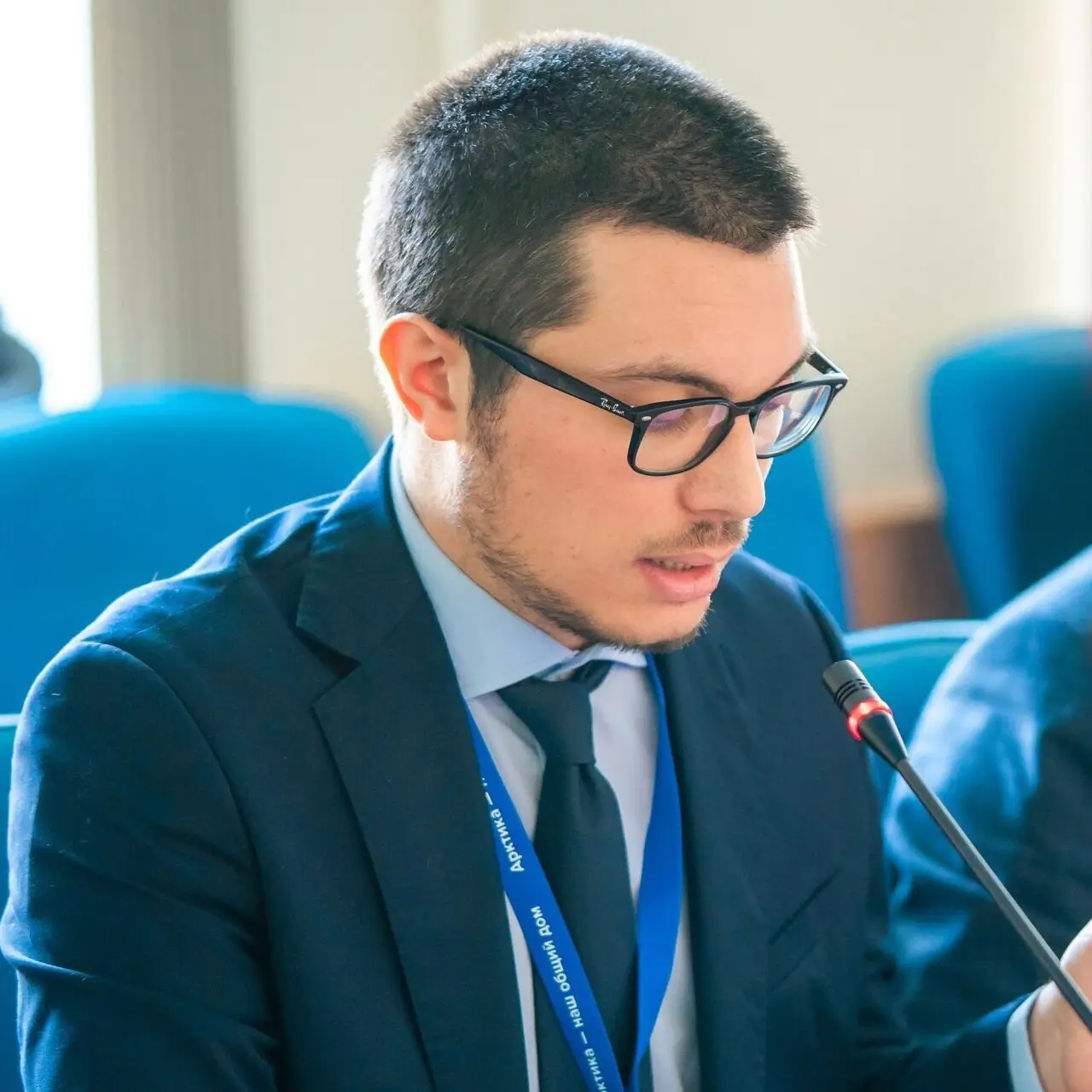
Since its founding in 1996, the Arctic Council has been the institutional core of cooperation in the North. Created to promote dialogue among the eight Arctic states and various organisations of indigenous peoples, it provided for more than twenty-five years a rare form of stability in international relations. That mechanism is now in deep crisis. The suspension of relations with Russia after 2022, following the special military operation in Ukraine, has disrupted the very principle on which the Council was built: the ability to cooperate despite global tensions.
In Reykjavík, during the Arctic Circle Assembly 2025, this issue was openly discussed. In the panels Multilateralism and Arctic Council, Beyond Boundaries: Vitalising Euro-Atlantic Arctic Dialogue and Can Science & Conservation Help Rebuild US-Russia Relations?, the question was not whether the Council could return to its previous form, but whether a genuinely multilateral Arctic political space still exists. The debate revealed a fragmented picture, in which the working groups continue to function but lack the political framework that once gave them meaning.
As noted by Professor Andreas Raspotnik of the Fridtjof Nansen Institute and director of the High North Centre at Nord University, “the Arctic Council remains a fundamental structure that must be preserved.” Still, he acknowledged that once trust has been eroded, “rebuilding a framework like this is extremely difficult.”
The discussion that ran throughout the Assembly was clear: cooperation remains possible but is no longer automatic. The Arctic, once described as an exception to the rest of the world, has not disappeared as a space for dialogue, but has become a place where trust must be rebuilt step by step, within a more fragile and realistic balance.

During the Arctic Circle Assembly 2025. Source: Tommaso Bontempi
The Arctic Council In A State Of Suspended Animation
At ACA 2025, a clear picture emerged: the Arctic Council still exists, but it no longer functions as it once did. No one has declared its end, yet everyone has acknowledged its paralysis. In the panels devoted to multilateralism, several speakers pointed out that the body formally continues to exist, though reduced to the technical dimension of its working groups, which now meet digitally and with partial participation. It is a continuity that is more symbolic than political, maintained to prevent an institutional vacuum that no one would know how to fill.
The Arctic Council, however, “remains a fundamental structure that must be preserved.” In an international system marked by new divisions, its very existence provides a legal and diplomatic reference point that cannot easily be replaced. Still, as noted, “once a framework like this is lost, it is extremely difficult to rebuild.”
After the suspension in 2022, the Arctic Council partially resumed its activities through meetings of the Senior Arctic Officials, the high-level Arctic representatives responsible for coordinating the working groups and preparing ministerial decisions. Sessions were held in Salekhard in 2023 and Tromsø in 2025, both in a restricted format and without the joint participation of all eight member states. While these gatherings signalled an attempt to keep dialogue alive, they also confirmed the absence of effective cooperation between Russia and the other Arctic countries.
The result is an organisation operating in separate compartments, where technical components—from environmental protection to marine data management—survive but are disconnected from political coordination. It is a form of institutional suspended animation, where the body survives but the will remains dormant.
Frozen Scientific Cooperation
Among the sectors most affected by the 2022 rupture is scientific research, long regarded as the most stable foundation of Arctic cooperation. The suspension of projects with Russia has disrupted collaborative networks built over decades, linking universities, research institutes, and environmental agencies across the North. The most serious loss, as several experts noted, concerns not only academic contacts but also the long-term climate and oceanographic data series, now partly inaccessible for political and logistical reasons.
Science, once the last neutral space for dialogue, has become a collateral victim of the political crisis. Many joint projects have been suspended or scaled down, field missions slowed, and personnel exchanges restricted by administrative barriers and visa limitations.
Discussions highlighted the difficulty of replacing the Russian component in key fields such as meteorology, marine biology, and permafrost studies. The network of observatories, laboratories and scientific infrastructure located in the Arctic territories of the Russian Federation covers an area half the size of the entire polar basin. Without access to these data, there is a real risk of losing continuity in long-term observations, just as climate change is accelerating faster than anywhere else.
Despite the halt in bilateral channels, some multilateral bodies have tried to keep technical dialogue alive through open sharing of satellite data and joint participation in UN-based international conferences. Yet the trust that for decades made Arctic science a natural arena of cooperation can no longer be taken for granted.
Enduring Networks
In the absence of a fully functioning multilateral framework, Arctic cooperation has shifted toward regional and sub-state levels, where cities, regions and local institutions are taking on an increasingly active role. It is a quiet but steady process that replaces traditional diplomacy with technical, administrative, and scientific networks.
Programmes such as the Arctic Mayors’ Forum and the Northern Sparsely Populated Areas Network now promote pragmatic forms of coordination among communities of the Far North. Their goal is not to debate politics but to address concrete issues: infrastructure, transport, essential services, and sustainable development. Many speakers underlined that these levels of cooperation represent the practical continuation of a dialogue that, at the state level, remains frozen.
The European Union also supports this evolution. Funding from the Interreg Northern Periphery and Arctic programme sustains local projects in renewable energy, digitalisation and healthcare across remote areas. These initiatives keep alive a key principle of Arctic governance: cooperation does not have to start from central governments.
Overall, a less visible but more flexible balance is emerging, built on cooperation among local actors and regional institutions. An Arctic where politics retreats, but everyday collaboration continues to find space.

Europe And The Changing North
Among the recurring themes discussed, the European Union’s position in the Arctic appeared complex and still lacking a clear direction. The EU continues to describe itself as a promoter of multilateralism and peaceful cooperation, yet its presence in the North remains multifaceted. Member states do not share a common vision: for some, the Arctic is a matter of security and defence; for others, an economic or environmental issue. The result is a fragmented approach, with priorities shifting according to national governments and political sensibilities.
In the panels dedicated to governance, it was noted that the Union cannot replace the Arctic Council, but it can strengthen its remaining mechanisms and support new forms of technical cooperation. The European Commission has continued to fund projects related to maritime security, sustainable fisheries, and environmental research, while avoiding the adoption of an overtly political role.
Another element that emerged was self-criticism. Even though the EU sees itself as a normative power, it does not always succeed in turning its values into effective instruments of influence in the North. As several experts observed, Brussels often speaks of Arctic “engagement” but rarely manages to translate it into a shared vision with local actors. The Arctic Policy, updated in 2021, includes references to the green transition and security but remains more a framework of principles than a real “strategy”.
Overall, the EU shows itself as a “diffuse actor,” more visible in projects than in declarations. Its weight is not measured in summits or communiqués but in its ability to keep technical and scientific cooperation alive. In a context where traditional diplomacy is halted, this quiet form of presence could represent one of the few remaining lines of continuity in the Arctic system today.
An Arctic Without Exceptions
The concept of Arctic exceptionalism, long central to the narrative of Northern cooperation, has become increasingly difficult to sustain. Discussions made it clear that the Arctic no longer stands separately from global tensions but now reflects their dynamics. The ongoing geopolitical clash, technological competition and the breakdown of energy networks have quickly dismantled the notion of a region immune from the world’s clashes.
Several speakers noted that the region is entering a phase of political realism, where cooperation is no longer a given but a goal to be built step by step. The Arctic has not disappeared as a space for dialogue, but the trust that sustained its architecture has been seriously weakened. Scientific, logistical, and civilian cooperation continues, but on a more fragile and less predictable basis.
Some interventions insisted on a distinction between competition and conflict, reminding that deterrence and security do not automatically exclude collaboration. The challenge now is managing a delicate balance: ensuring stability through transparency, avoiding the excessive politicisation of science, and keeping institutional communication channels open.
Overall, the Arctic today is a space where global logics intersect with regional ones. The era of exceptionalism is over, but not the one of cooperation. What has changed is its shape, progressively more conditioned by the international context.

Journalist
Osservatorio Artico

